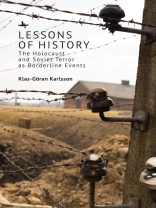Lessons of history are often referred to in public discourse, but seldom in scholarly discussions. This book seeks to change this by introducing an innovative analytical model of historical lessons, starting from the basic three-fold perspective that everyone simultaneously is history, shares history, and makes history. Not all history, however, is useful for extracting lessons. Here, what are called borderline historical events, which demonstrate both time-specific and time-transcending qualities, are suggested as useful didactic material. Scholarly works on the Holocaust and Soviet terror, from Raul Hilberg’s and Robert Conquest’s classical works of the 1960s, to more recent books by Jan Gross and Timothy Snyder, are analyzed to identify lessons of history, and how they have changed during a full half-century.
Tabela de Conteúdo
Introduction
Conclusion
Acknowledgements
Bibliography
Index
Sobre o autor
Klas-Göran Karlsson has been Professor of History at Lund University since 2000 and specializes in modern international history, particularly: Russian, Soviet, and Post-Soviet Studies; Genocide Studies; history of the World Wars; the Baltic Sea regional history; and the uses of history in society, culture, and education.












